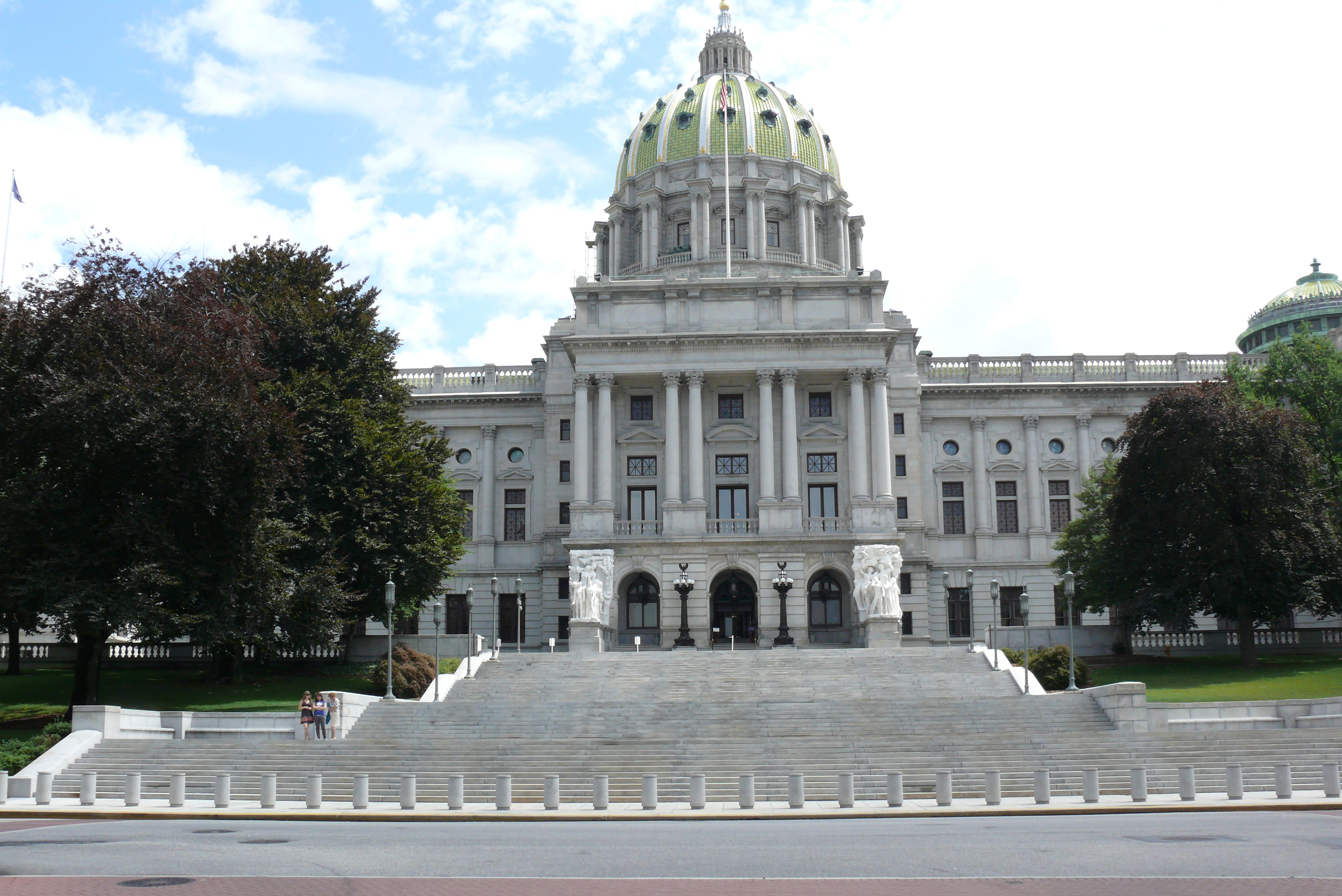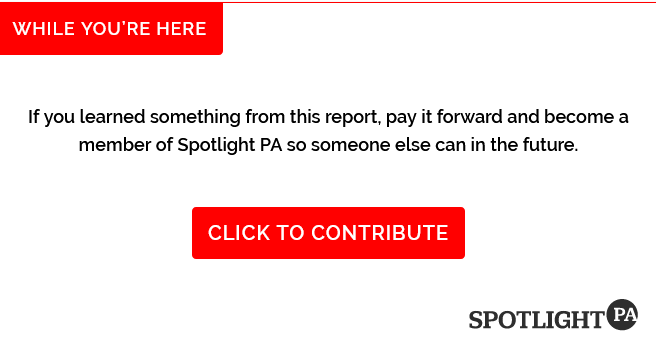
Pa. Primary Election 2023: Supreme Court Candidates With Party Backing Show Fundraising Advantage
Kate Huangpu of Spotlight PA and Stephen Caruso of Spotlight PA
Spotlight PA is an independent, nonpartisan newsroom powered by The Philadelphia Inquirer in partnership with PennLive/The Patriot-News, TribLIVE/Pittsburgh Tribune-Review, and WITF Public Media. Sign up for our free newsletters.
HARRISBURG — The candidates running for an open seat on Pennsylvania’s Supreme Court are getting campaign money from wealthy donors, their own bank accounts, construction trade unions, and in one case, from failed 2022 GOP gubernatorial candidate Doug Mastriano.
Without exception, the candidates with institutional party backing have a lot more money on hand. It’s not an unusual state of affairs in Pennsylvania politics.
The four candidates raised about $365,000 in cash and in-kind donations collectively between the beginning of the year and late March, when they filed their latest campaign finance reports.
The commonwealth’s campaign finance laws put no limits on how much money an individual donor or political action committee — such as those set up by interest groups, corporations, or unions — can give to a candidate. Party backing often makes or breaks a candidacy during low-interest odd-year elections.
At stake in November is a seat on the Pennsylvania Supreme Court, which has had a vacancy since the death of former Chief Justice Max Baer last year. The state Supreme Court takes on relatively few cases, but its rulings can have a major impact on politics and policy in Pennsylvania. In recent years, the court has decided cases on reproductive rights, mask mandates, and election disputes.
Justices elected as Democrats have been in the majority since 2015, and flipping the court back has been a top Republican priority since then. The seven-member court is currently composed of four Democrats and two Republicans.
That race starts this spring, when registered Democratic and Republican voters will select their candidates for the fall. The primary is May 16.
>>ELECTION CENTER 2023: Everything you need to know to participate in the May primary
Vying for the Republican nod are two candidates: Montgomery County President Judge Carolyn Carluccio and Patricia McCullough, who is a judge on a lower statewide appellate court.
Carluccio, who is endorsed by the state Republican Party, has raised about $146,500 since the beginning of the year, mostly from a handful of big donors.
One of the most important is GOP power broker Bob Asher. A political action committee he chairs, the PA Future Fund, gave Carluccio $25,000, while he donated an additional $5,000 from his own pockets.
Alfred Barbour, president of a western Pennsylvania metal manufacturer, also donated $25,000 to Carluccio’s campaign. Barbour and his wife, Mary, have donated thousands of dollars to Republican races over the past few years — including to Bill McSwain’s unsuccessful primary campaign for U.S. Senate and Kevin Brobson’s successful campaign for a state Supreme Court seat.
Carluccio also loaned $25,000 to herself and received another $25,000 from Montgomery County realtor Charles Tornetta, who appears to be her father.
McCullough, an arch-conservative Commonwealth Court judge who unsuccessfully sought the GOP Supreme Court nomination in 2021, has played up her support for former President Donald Trump. She was one of the only state judges to side with efforts by a group of Republican lawmakers to invalidate the 2020 election results.
Her campaign has raised about $10,800. That’s similar to 2021, when she reported just $7,000 raised and $3,500 spent.
Nearly all of her funds came from the Friends of Doug Mastriano PAC, which donated $10,000. Mastriano is a far-right state senator who unsuccessfully ran for governor in 2022. McCullough spoke about her campaign at Mastriano’s “Walk Free as People” rally in March.
The reports show one notable absence — any groups connected to conservative mega-donor Jeff Yass, who spent hundreds of thousands of dollars in the 2021 Republican Supreme Court primary backing Brobson.
>>A complete guide to the candidates for state Supreme Court
Two Democrats who sit on another statewide appellate bench, Superior Court, are facing off for the party’s nomination — Dan McCaffrey, of Philadelphia, and Deborah Kunselman, of Beaver County.
McCaffrey, who is endorsed by the state Democratic Party, raised $141,000, mostly from a number of trade union PACs, including $25,000 from the state carpenters’ union — his biggest donation. He also received $15,000 from a Pittsburgh union representing heavy equipment operators and $10,000 from the regional union representing general construction workers.
Kunselman raised half of that total, at $66,500. Her biggest donor is herself; she gave her campaign a loan of $10,500. The rest mostly came from western Pennsylvania attorneys.
Longtime GOP operative Christopher Nicholas noted that in both primaries, the endorsed candidate had the fundraising edge.
“It seems the hierarchy in both parties have their preferred Supreme Court candidates and have had them for a while,” Nicholas said.
Once considered sleepy races, statewide judicial elections have attracted big money in recent years.
With three seats up for grabs in 2015, total spending on the court’s races hit $16 million. At least $7.1 million was spent in 2021 with one seat on the ballot.
Judicial candidates in Pennsylvania have more stringent rules for fundraising and campaigning than candidates for governor or the state legislature. Candidates cannot directly solicit money from donors, instead leaving so-called “call time” to campaign staffers on their electoral committee. Judicial candidates also cannot say how they’d decide on specific issues or cases.
Still, Deb Gross, executive director of Pennsylvanians for Modern Courts, a group that pushes to end judicial elections, told Spotlight PA that while fundraising and campaigning are necessary so that voters are informed when they cast their ballots, it can increase the potential appearance of impropriety.
“Either public [election] financing or merit selection are all honestly probably better options,” Gross told Spotlight PA.
WHILE YOU’RE HERE… If you learned something from this story, pay it forward and become a member of Spotlight PA so someone else can in the future at spotlightpa.org/donate. Spotlight PA is funded by foundations and readers like you who are committed to accountability journalism that gets results.





